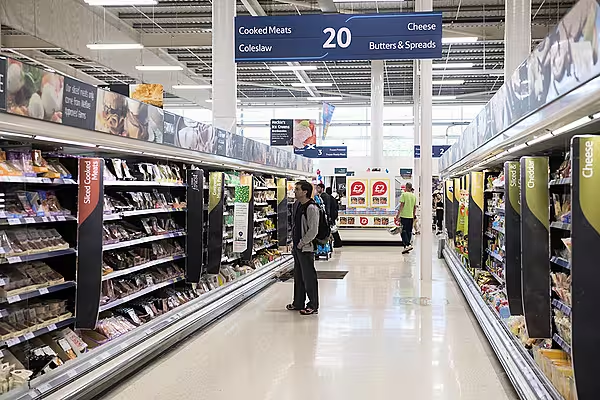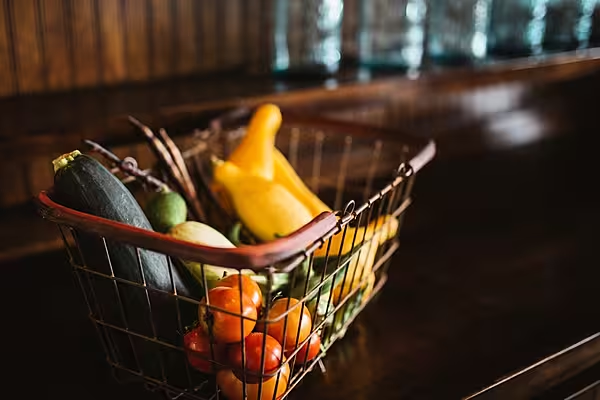Britain's biggest supermarket Tesco can keep shelves stocked and withstand shopper hoarding over coronavirus that has seen runs on pasta, hand sanitiser and toilet roll, its chairman said on Thursday.
Social media has been awash this week with pictures of empty shelves in Britain's major supermarkets, with items like dried pasta and toilet rolls particularly sought after.
But John Allan said that although Tesco's recent trading had been characterised by heavy buying of certain products, including tissues and hand sanitisers, it was not at a level that threatened the retailer's supply chain.
"There’s plenty of product in the supply chain, there’s plenty of food at Tesco and other supermarkets, and I don’t think anybody needs to panic buy," he told BBC radio.
"We, and I’m sure our competitors, are re-filling our supply chains as rapidly as ever we can."
Allan said it was unlikely Tesco, which has a 27.2% UK grocery market share, would experience anything more than "very short term, temporary" shortages of certain products.
Supermarket industry sources said trading in the last week had been strong, with daily levels of up to 70% of those typically seen on days in the run-up to Christmas, the busiest time of the year.
"People aren’t buying everything and expecting the world to end, what they’re doing is taking a very considered view, which is 'what are the things with long life that I can hold – pasta, UHT milk, frozen – and I’m going to buy 20-40% more of those categories,'" said one of the sources.
"So the cumulative effect is it will put the factories, the depots and the shops under pressure in terms of replenishment."
There has also been a pick-up in online grocery trade as some consumers start to avoid social contact and choose delivery options for bulk purchases.
The "million dollar question" is how consumers would react to more stringent measures, such as school closures and more working from home, if the government deems those necessary to try to contain the spread of the virus, the source said.
British cases of coronavirus have jumped 29% to 590 over the past 24 hours, health authorities said on Thursday, with the death toll rising to 10.
Shopper Number Down
The wider retail sector is already struggling.
The Bank of England cut interest rates on Wednesday after it saw a "sharp fall" in trading, particularly in the retail sector.
Shopper numbers in central London and in coastal UK towns were down 5.5% in the first eleven days of March, reflecting their reliance on tourism, according to researcher Springboard.
Across the country footfall was down 1.5%, it said.
"Retailers had a rough time in February (due to storms) and they're going to have a rough time in March," Springboard insights director Diane Wehrle told Reuters.
She is now worried about Easter, a key trading period.
In a sign of the pressure, Britons' inboxes are full of emails from distressed retailers offering major discounts.
And already, retailers are warning on profits: WH Smith said the slump in travel would hit its stores in airports and railway stations, wiping up to £40 million ($50 million) off its full-year underlying profit.
News by Reuters, edited by Checkout. Click subscribe to sign up for the Checkout print edition.






